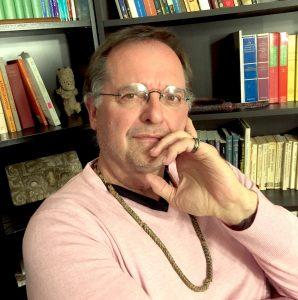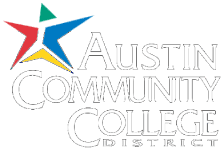The Dean’s Vision
Guiding Principles of the Liberal Arts Gateway Program
The Dean’s Vision
Guiding Principles of the Liberal Arts Gateway Program
Mission
The mission of the Liberal Arts Gateway is to save civilization by equipping students for productive lives in a pluralistic society. The image of the gateway is a metaphor of our aspiration: Every gateway opens into a pathway.

Matthew M. Daude
Dean, Liberal Arts: Humanities & Communications
Co-chair, Liberal Arts Gateway
Austin Community College
Pathways
Avoid trivializing the notion of pathways. We have adopted “pathways” at ACC, and that has largely meant a critique of historic practices leading to relatively superficial changes in the way we shepherd students through our system. For instance, we have published degree maps so we know what course comes next. We have streamlined the admissions process and provided additional enrollment support. We have grouped an impressive number of programs and pathways into ten, intelligible Areas of Study.
Those changes and the wayfinding they provide are useful improvements. But there’s a much grander vision of pathways we could adopt, particularly for the grand mission of the liberal arts. So let’s think bigger—we are after all talking about saving civilization—and ask:
What courses would we create in our disciplines if we believed that saving civilization depended on us, professing the Liberal Arts?
First, think about student pathways in the largest, most encompassing sense: the course, the sequence, the award—transfer or workforce—work life, family, community—and ultimately, the goal of living a Good Life. Yes, you read that correctly; a Good Life. It’s time to stop apologizing and get our apologetics on: Engagement in the Liberal Arts is, and always has been, about living the best kind of human life.

Living the best kind of human life simply cannot be a life of whistling in the dark whenever we confront our anxieties about Otherness or erecting barriers to insulate us from Others. A Good Life is a life of thriving in a genuinely pluralistic society.
Living a good life is also living an aware, informed life. Aristotle endorsed this notion of the good life in his view that a sign of an educated mind is sufficient knowledge in sufficiently many fields of inquiry to see connections. For this reason, the aspiration to prepare students for full participation in a pluralistic society must include not merely a deep engagement in a discipline, but engagement in learning across the full range of skill and knowledge domains, from the human and heuristic sciences to an understanding of natural and mathematical worlds.
Guiding Values
The connection of living a Good Life to pluralism allows us to reformulate our question:
What courses would we create for our disciplines if the goal of each person who takes them is to live a Good Life?
We would do all of the following:
-
- Make the student experience central and do everything we could to connect the student’s experience to the heart of our discipline.
- Cast the largest possible net, and welcome divergent voices and perspectives into the ever-expanding Great Conversation.
- Anticipate the needs of everyone touched by our students in the future, and build in reflective preparation for those needs.

The common purpose and common language of the LAG is itself a heuristic: It is a tool to enable your student to study your discipline more and your course design less. It is the pathways philosophy to build wayfinding into course structures. Adopting common wayfinding cues is no more erosion of a discipline than the structure of books: In spite of their common characteristics, books allow for the exploration of infinite fields of meaning.
To facilitate engagement with the heart of the discipline, adopt the Principle of Sufficient Cohesion: Build gateway courses around sufficiently cohesive organizational structures and terminology to make the navigation learning curve short and flat.
A natural complement to uniform wayfinding is a uniform opportunity for a reflective experience common to gateway courses. Note that this is not a “common assignment”: rather, it is a common moment of reflection, a “taking stock” of the experience of acquiring and practicing habits of intellectual character. This common moment will allow students to experience the resonances as well as the depths of liberal arts disciplines through reflection on their own intellectual work.
The LAG is also a community of scholars committed to modeling as well as teaching the values of the liberal arts. That is fundamentally a commitment to hermeutic response to otherness, an expansive embrace of difference and dissent. Faithfulness to the critical pluralism inherent in the liberal arts results in a commitment to equity and inclusion—and in the courage to examine beliefs and practices, however, innocent, that result in the marginalization of alternate voices.
The theme of saving civilization is neither gratuitous nor hyperbolic: In teaching the liberal arts, we are shaping our students’ futures, and the possible futures of their families, their communities, and their aspiration for a Good Life. In recognizing the scope of our influence, we accept responsibility for our part in these possible futures, and we build that obligation into courses in the form of “anticipations” of joys and challenges to come.
The student experience, equity and inclusion, and responsiveness to down-path stakeholders: Let those become our guiding values.
Intellectual Character
Every Liberal Arts scholar has gone down these paths before our students, which makes us their guides. Inevitably our actions speak as loudly as our lectures, so what face shall we present to them? We are Liberal Arts scholars. We live in disciplines. Our disciplines are little pockets of pluralism, with difference of informed opinion as our daily diet.
But we’re also primates, and another way to look at ourselves is that we also band together to distance ourselves from others, marked by the methods they use that we reject, the conclusions they draw that we critique, etc. But in the Liberal Arts, we also fight that urge. We listen. We strive to understand. Or at least, we try—and we fail. But we keep coming back for more. That is what Hutchins meant by naming his book The Great Conversation. But the Conversation didn’t start or stop with the West, or the Canon, or our home disciplines.
We are called by the Liberal Arts to embody a certain intellectual humility — the willingness to slow down and listen and understand. But that humility must be matched with intellectual courage: The will to try, again and again, to say true things, and to let others hear and disagree.
The calling of the liberal arts scholar is a perpetual discipline of learning, reflection, and self-awareness in encounters with Otherness.
And what could possibly be better preparation for thriving in a pluralistic society?
As professors, we strive to model this self-discipline for our students, and we encourage them to develop habits of mind conducive to intellectual character:
-
- Persevere: Don’t give up — in this course, in a conversation, in a line of inquiry, in the pursuit of truth, or in the work of saving civilization.
- Progress: Learn how to gauge progress for yourself — benchmarks, indicators, self-reflection, honesty (with yourself, above all). We stand on the shoulders of giants, but give yourself credit for climbing up there to have a look.
- Produce meaningful intellectual work — and challenge yourself to do better work next time.
- Promote the fruits of your work to others — both as a courageous attempt to say something true and as an invitation to hear others critique your work.
- Perpetuate these traits, deepen them into habits of mind, and expand them to encompass more and more of your intellectual life.

The Five P’s of Intellectual Character
This is the Liberal Arts Gateway: An aspiration, guiding values, and the foundational elements of intellectual character.
But this is just a surface description of the Gateway. Each of you, each discipline needs to penetrate this surface and find deeper principles that drive instantiations of the Gateway. What will this be like for writing? for literature? philosophy? What will it be for ESOL? INRW? CoReqs? Dual Credit? Honors?
